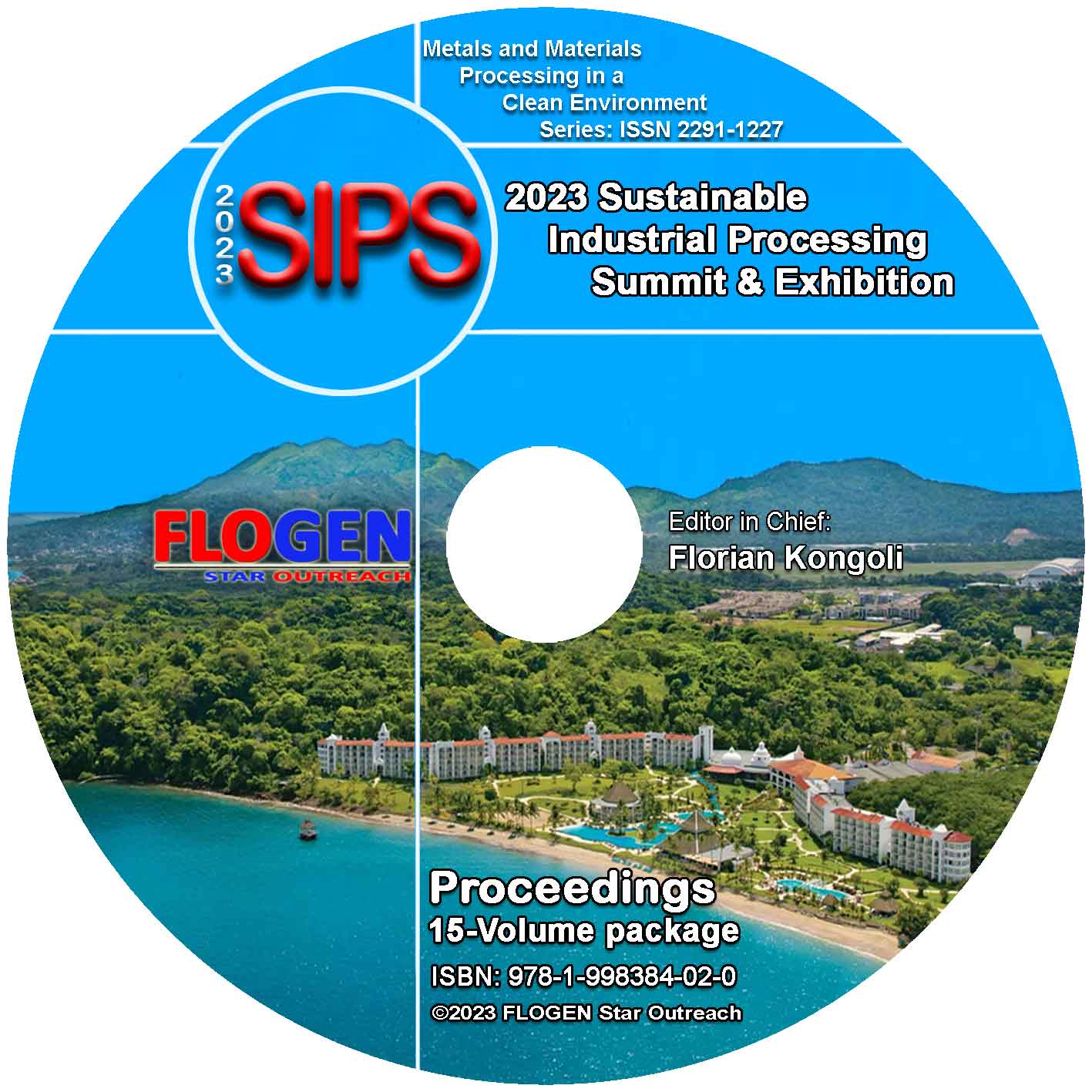2023-Sustainable Industrial Processing Summit
SIPS2023 Volume 8. Poeppelmeier Intl. Symp. / Solid State Chemistry
| Editors: | F. Kongoli, M. Delferro, P. S. Halasyamani, M. A. Alario-Franco, F. Marquis, A. Tressaud, H. Kageyama |
| Publisher: | Flogen Star OUTREACH |
| Publication Year: | 2023 |
| Pages: | 144 pages |
| ISBN: | 978-1-989820-86-5 (CD) |
| ISSN: | 2291-1227 (Metals and Materials Processing in a Clean Environment Series) |

CD shopping page
THE REVOLUTION OF PERSONALIZED MEDICINE: ARE WE GOING TO CURE ALL DISEASES AND AT WHAT PRICE ?
Aaron Ciechanover1;1TECHNION-ISRAEL INSTITUTE OF TECHNOLOGY, Haifa, Israel;
Type of Paper: General Plenary
Id Paper: 508
Topic: 46
Abstract:
Many important drugs such as penicillin and aspirin were discovered by serendipity. Other major drugs like the cholesterol-reducing statins were discovered using more advanced technologies, such as screening of large libraries of synthetic or natural compounds. In all these cases, the mechanism of action of the drug were largely unknown at the time of their discovery and was unraveled only later. With the realization that patients with apparently similar diseases – breast or prostate cancer, for example - respond differently to similar treatments and their disease course is vastly different, we have begun to understand that the molecular mechanistic base of what we assumed to be the same disease entity, are different. Thus, breast or prostate cancers appear to be sub-divided to smaller distinct classes according to their molecular characteristics and the causing underlying mechanisms/mutations. As a result, we are exiting now the era where the treatment of many diseases is “one size fits all†and enter a new era of “personalized medicine†where the treatment is tailored according to the patient’s molecular/mutational profile. Here, the understanding of the mechanism will drive the development of new drugs. This era will be characterized initially by the development of technologies to sequence individual genomes, transcriptomes, proteomes and metabolomes, followed by identification and characterization of new disease-specific molecular markers and drug targets, and by design of novel, mechanism-based drugs to these targets. The era will be also accompanied by complex bioethical problems, from high pricing and limited accessibility of large fractions of needy population to the achievements of biomedical research, but also to an era where genetic information of large populations will become available, and protection of privacy will become an important, yet a fragile issue. The introduction of gene editing technology to the armamentarium of novel therapeutic modalities, will add yet another layer of bioethical complexity to the one imposed by access to generic information and the ability to predict the future of health (or disease) course of patients.     Â
Â